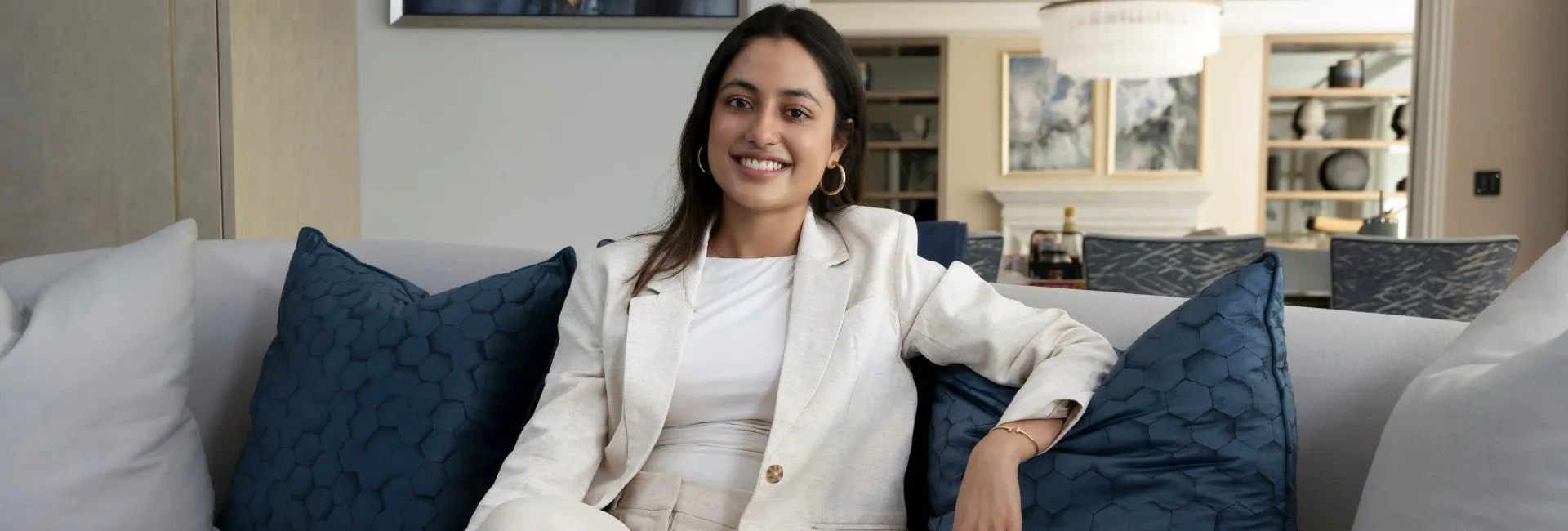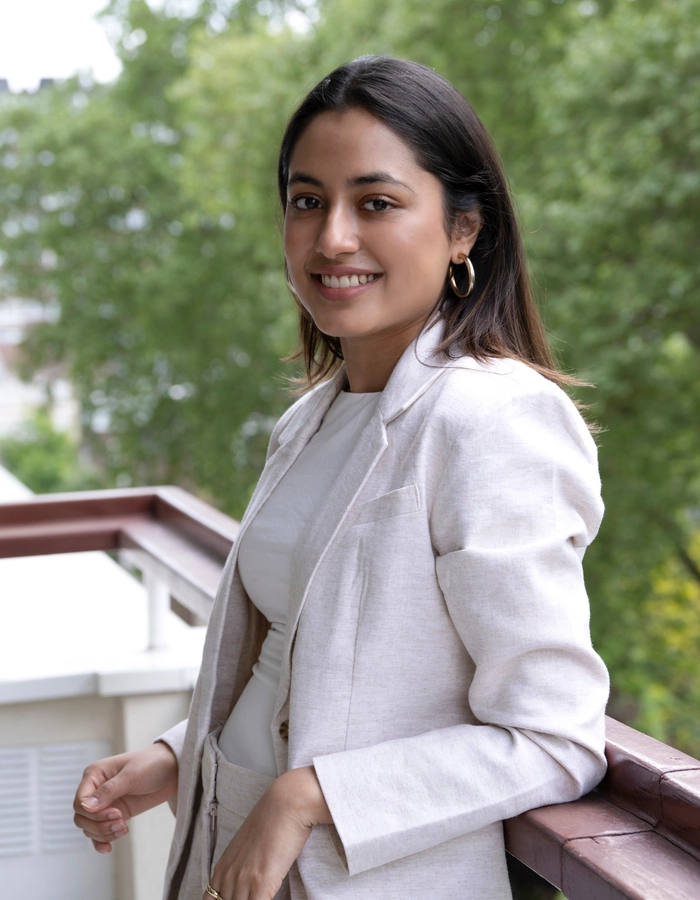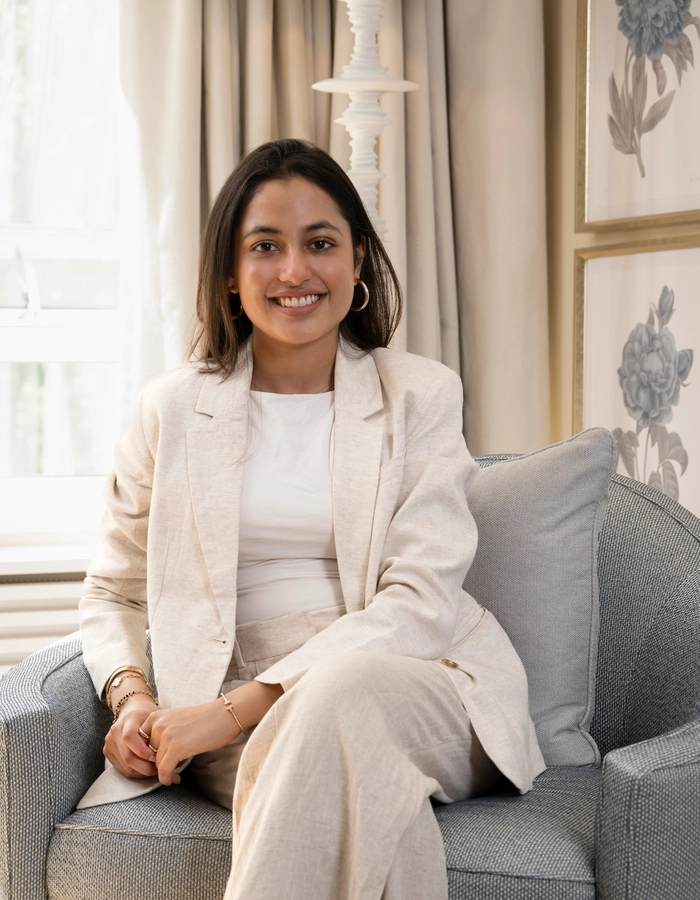(July 3, 2025) Back in 1937, in the bustling lanes of Bikaner, Rajasthan, a modest standalone shop sprang to life — the brainchild of Rhea Agarwal’s great-great-grandfather Ganga Bishan Agarwal, fondly known as Haldiram. What began as a small venture laid the foundation for a legacy that would stretch across generations. Over the years, Haldiram’s has grown into a go-to snack brand for millions of Indians, and has also found a strong global footprint with its presence in over 80 countries, including the recent launch of its first international outlet in Dubai. Now, Rhea is carrying the legacy forward — leading the brand’s expansion across the UK, the EU, and beyond, while popularising it among the Indian diaspora by giving them a familiar taste of home.
“I came to the UK when I was 13, and having lived away from home for a decade, I understand the value of food that one is familiar to. So I am helping bring that taste of food to the diaspora by popularising Haldiram’s in the UK and EU,” Rhea tells Global Indian.
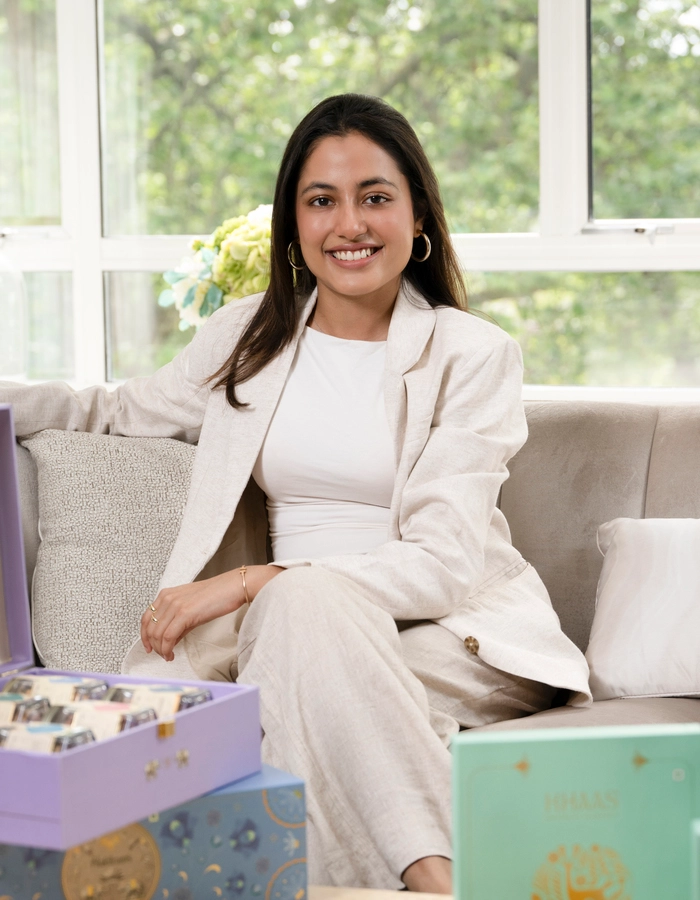
Rhea Agarwal
Southall marked Haldiram’s UK debut – Rhea is shaping its next chapter
While Haldiram’s has been exporting as early as 1994, it was in 2018 that it opened its first manufacturing unit outside India in Southall, London – a hub of the South Asian diaspora known for their love for food, making it a perfect launchpad for the brand’s global expansion. “The sudden restriction on importing dairy products from South Asia led us to start a manufacturing unit in South Hall,” informs Rhea, who was still studying in the UK at that time.
The pandemic changed everything for her. Until 2020, joining the family business wasn’t even on her radar. She knew Haldiram’s was already a household name, operating at an immense scale and often wondered if her contribution would make any difference. “I’m very ambitious and wanted to contribute to something where I could make a difference. I like to see growth and in an already growing business, I didn’t know where I fit in,” says Rhea. But the Covid-19 lockdown brought an unexpected twist to her plans. With her family unable to travel and no large team to manage the Southall manufacturing unit, Rhea stepped in to help – marking the start of her unexpected journey into her family business.
“I began with the basics – handling invoices and purchase orders. But I soon realised this was a tailor-made opportunity. The unit was very small in comparison to the larger Haldiram’s group, which meant I could treat it like a blank canvas. I saw the potential to build and grow something from the ground up and grow it into something as impactful as Haldiram’s is in India. That’s what motivated me to take it up full-time — knowing that every move I made was having a real impact,” adds Rhea.
From launching the first e-commerce website that boosted sales to securing new accounts, she could clearly see the impact she was making. “If I were to launch a new product line in India, it would likely get lost in the sea of SKUs we already have. But here, I’ve been involved from the very beginning — from attending pitches to overseeing operations. Every decision I make directly reflects in the P&L statement. And because I don’t carry the baggage of how big the business is back home, I feel free to take bold steps,” informs the 23-year-old, who grew up with dinner table conversations centered around food.
From Delhi kitchens to UK classrooms — rediscovering the Haldiram’s legacy
Growing up in Delhi, Rhea has fond memories of her helping her mom in the kitchen. It was the aroma of the food that initially drew her in but she soon discovered a deeper passion – she loved feeding people. “The joy I get from serving was unmatched. That’s when I knew I wanted to something in the food industry.”
Despite belonging to a family that owns one of India’s biggest snack brands, Rhea’s childhood was ordinary and far from the limelight. “We had no idea about the scale of the business. Back then, it was well-established but still growing. Every weekend, we would visit one of the outlets in the city. Like any business family, we would help at the shop – it was just part of our routine.”
At the age of 13, she joined Ardingly College, a boarding school in the UK and the physical distance led to a disconnect with the brand. “Here, with my friends, we never really talked about our backgrounds — and no one in the UK was familiar with the brand. So there was a sense of disconnect. It was only when I went to University College London for my master’s, and interacted with so many Indians my age that I understood how they viewed the brand and the family. That’s when it hit me – the magnitude of what Haldiram’s really meant to people.”
From Bikaner to Delhi: The Haldiram’s origin story
Rhea credits her grandfather for Haldiram’s remarkable growth, calling him the driving force behind its transformation into the iconic brand it is today. She calls him a visionary who wanted to grow the business that was started by her great-great grandfather in the lanes of Bikaner in 1937. “He would make bhujia himself and even experimented by replacing besan with moth dal, which made it a crispier. Bhujia is a staple in Rajasthan, but the use of moth dal set it apart and made the shop popular. It was later passed onto my great grandfather,” says Rhea.
But it was her grandfather who saw the potential to expand the business. Along with his brothers, he moved to the metropolis and set up the first kaarkhana (manufacturing unit) in Chandni Chowk, Delhi. “My grandfather stayed back in the capital while his brother moved to Nagpur to set up the business there. During the 1984 riots, the kaarkhana in Delhi was set on fire — but my grandfather didn’t give up. He started all over again, and the rest is history.”
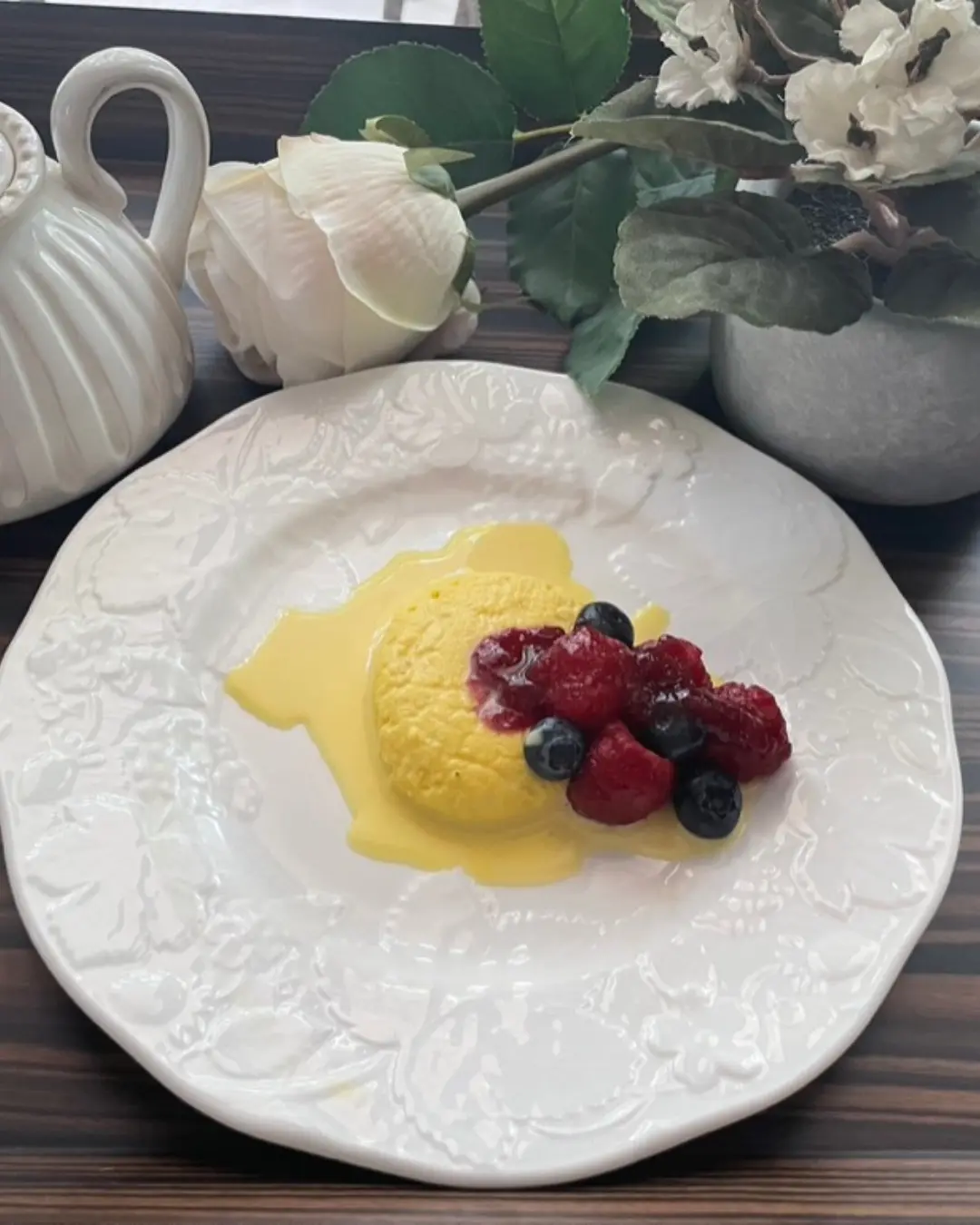
Ras malai
Legacy-led, future-focused: Rhea’s push for Haldiram’s UK
It’s the same perseverance that she brings to work while expanding Haldiram’s global footprint. Knowing very well that brands like Ambala and Royal, which originated in the UK, have captured the Indian snack market in the country for years, she is ready to take on the challenge of making a place for Haldiram’s in the UK market. “It’s challenging but it also motivates me to turn the tide. Whenever things get tough, I think of my grandfather — because he walked this very path decades ago when he first came to Delhi. Back then, no one knew the name Haldiram’s. But through perseverance and without any support, he built it into a brand. Compared to that, I have the backing from India, and that reminds me I have nothing to fear.”
As a Gen Z and third generation entrepreneur, Rhea has brought a fresh perspective to Haldiram’s operations in the UK. Her presence in London has helped the team make decisions faster and brought in new energy and fresh ideas. Her approach has sparked a wave of innovation. Thanks to her, Haldiram’s UK has ventured in B2B space – with the majority of Indian restaurants in London now serving Haldiram’s frozen food or sweets. They have also launched an e-commerce website, added new SKUs, partnered with airline kitchens, and are preparing to open their first physical store in Central London. “We’re always on the lookout for business opportunities — and the goal is to keep growing,” she adds.
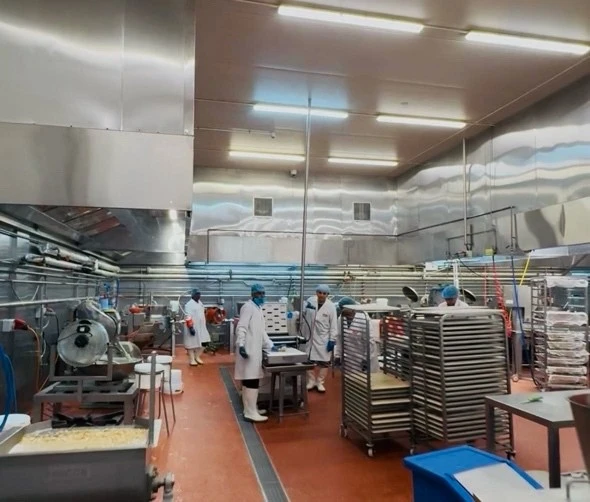
Haldiram’s Manufacturing Unit in Southall
For the diaspora, with love — and no preservatives
For so many in the Indian diaspora, food is the deepest connection to home — and Rhea understands his sentiment. With Haldiram’s now rooted in the UK, she feels a sense of purpose – to give people a taste of home. “Through the brand, I want to create a balance between tradition and modern food trends,” she explains. “We can’t abandon our roots — that creates a disconnect. Authenticity is our biggest USP.” She’s mindful of evolving consumer preferences and is blending innovation with legacy. “For instance, we’re introducing a low-sugar kaju katli, because people today prefer desserts that aren’t overly sweet,” she says.
View this post on Instagram
But bringing that sense of home into packaged food comes with its own set of challenges — especially in a market where consumers are increasingly health-conscious and expect transparency. Rhea is determined to shift perceptions. “I want to educate people that our packaged food is healthy — it contains no preservatives,” she explains. “Our ready-to-eat meals are made using only the ingredients needed to cook that dish — things you’d find in your own kitchen — and nothing more.”
To ensure shelf life without compromising on health, Haldiram’s uses retort processing, a method that seals in freshness through heat, not chemicals. “It’s the process and packaging material that preserve the food — not stabilisers or additives. That’s how we maintain quality, taste, and authenticity,” she adds.
A Global Indian Redefining Legacy for a New Era
In a world where food habits are rapidly evolving, leading a legacy business means more than preserving the past — it’s about shaping the future with intention. So, what does it take to build a legacy business in today’s world? Rhea believes it starts with one thing: self-belief. “If you aren’t convinced about what you’re selling — whether it’s from a standalone shop or part of a legacy business — there’s no way you can succeed. It’s all about the perception you create,” she says. Rhea is also clear that honouring a legacy doesn’t mean being stuck in the past. “It’s important not to carry the baggage of legacy. You have to pay equal attention to shifting trends and changing market demands — and shape your strategies around them. That’s when it really works.”
For Rhea, being part of the Indian diaspora isn’t just about heritage — it’s about responsibility, representation, and redefining how the world sees India. “To me, being a Global Indian means being an extension of our country — someone who is actively increasing awareness of what we, as Indians, are capable of. It’s about breaking stereotypes and changing perceptions about India. Living abroad gives you a unique opportunity to introduce your culture to the place you now call home.”
Taking legacy global, with Gen Z in mind
Looking ahead, Rhea is focused on taking Haldiram’s to the world with more global expansion. “New things are going to happen across borders,” she says. “We opened our first international restaurant in Dubai earlier this year, and more global stores are in the pipeline.”
While the brand has already established over 300 restaurants in India, she admits that expanding internationally took time — but believes the timing is now just right. “We’re entering global markets a bit later than we could have, but now we have solid infrastructure in India that can fully support any overseas endeavour,” she adds.
Her vision, however, isn’t just geographic — it’s generational. “My biggest aim is for our products to connect with the new generation. Today, Gen Z is walking into grocery stores, and very rarely would a 20-year-old pick up a packet of bhujia,” she notes. “That’s something I want to change — whether through new flavours, packaging, or ingredients — so they still choose to pick up Haldiram’s.” Rooted in tradition but driven by innovation, she’s building a future for Haldiram’s that speaks to both heritage and modern taste.
ALSO READ | Sumithra Sen: Building a diaspora bridge through the soul of South Indian food

